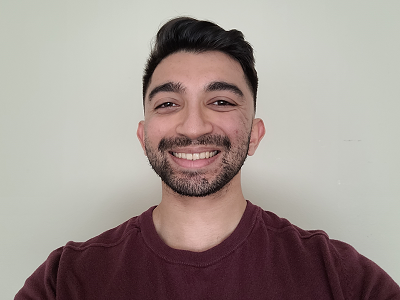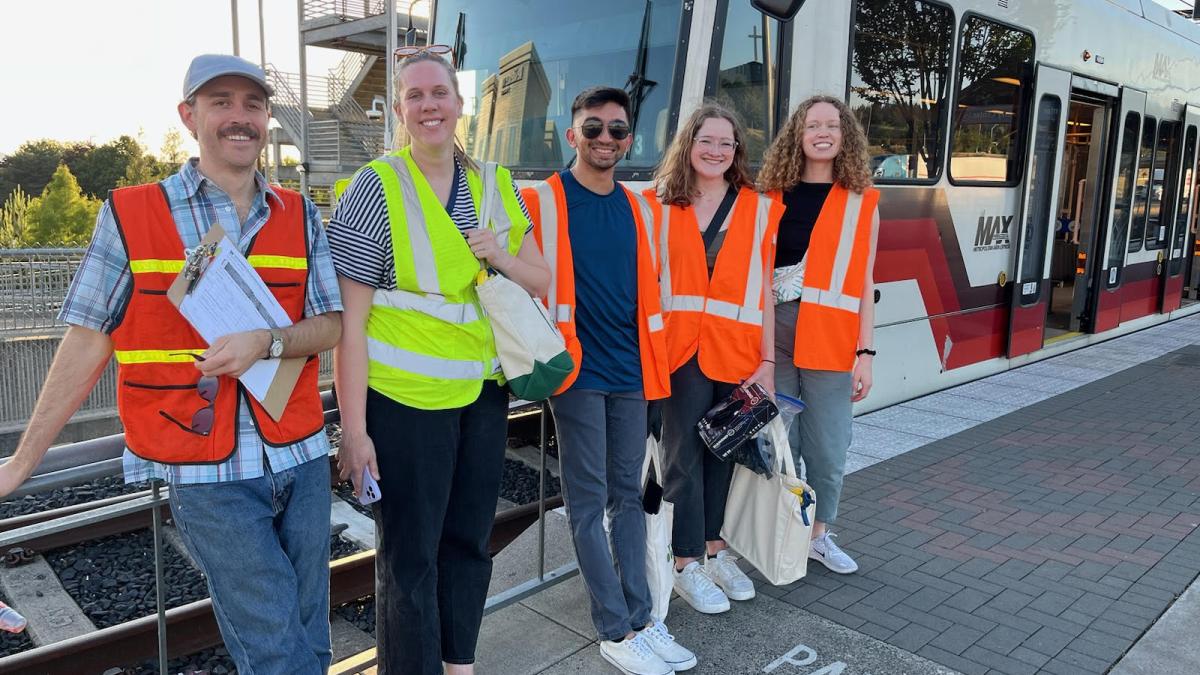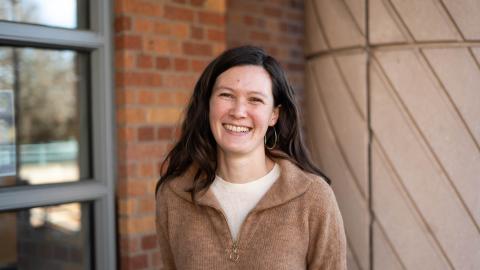
On April 4, 2024, the UW community raised funds for Husky Giving Day that supported UW students and programs. Your donations supported students like Pranav through the DEOHS Environmental Health Student Support Fund, which helps graduate students pay for research-related expenses, including travel and conference presentations to share their research.
With the support of the Environmental Health Student Support Fund, Pranav Srikanth recently presented research related to transit workers’ exposure to passenger drug use at the 2024 Cascadia Symposium on Environmental, Occupational and Population Health in Blaine, Washington.
“I particularly enjoyed the collaborative nature of this conference—seeing panels consisting of different institutions working on similar topics, and how the research on these topics is both similar and different by region,” he said. “The conference provided me with an opportunity to network with colleagues from different institutions in a casual setting, which made for interesting discussions on research.” We caught up with the PhD student recently to learn more about his research.
How did you first get interested in studying environmental health?
When I was an undergraduate at the University of Toronto, I was looking for research opportunities, and I had an interest in public health. I started emailing public health faculty alphabetically. Someone whose last name started with an “A” responded to me, and they were an occupational hygiene researcher.
They were doing research in Toronto nail salons, looking at all kinds of exposures for workers, and I started working with them. I worked on the psychosocial component of health, looking at stress, anxiety and depression. Nail salon workers in general, and especially in Toronto, are primarily immigrants and are a very vulnerable population.
How did you decide to come to DEOHS for graduate school?
The research in the UW Department of Environmental & Occupational Health Sciences (DEOHS) was much more interesting to me than the research in the other schools I was considering. UW was one of the few schools that had significant research on the psychosocial aspects of health, which I wanted to continue to work on.
When I came to visit, I spoke with faculty at every single school that I got into. And I just felt like I could work with the people here. I came to the UW for my master’s and continued here for my PhD.
Tell me about your research.

My dissertation work is looking at secondhand drug exposures on transit, and specifically how transit workers are exposed to passenger drug use while they’re at work.
Following up on our team’s exposure study, I conducted a survey of transit operators. I’m focusing on how their perceptions of the risk of drugs affects their physical health, mental health, and their perceptions of safety and well-being while they're at work.
I’ll also be interviewing transit operators to get a better sense of what kind of workplace supports are available to them, and what educational resources and trainings they have pertaining to drug exposures. I want to see where the gaps are and how we could fill those gaps.
What inspires or excites you most about your research?
I find it most rewarding that a lot of the work I do can be immediately practically applicable. For example, two years ago, I worked on a study with the Washington State Department of Health to look at low-cost methods to improve ventilation in long-term care facilities, related to COVID-19.
When we completed that study, those facilities were able to immediately implement some of the suggestions we had—opening doors, opening windows, and putting a portable fan in a window. Even if it represented a small improvement in their current status, it was good.
What has it been like to work with your adviser?
I've been working with DEOHS Assistant Professor Marissa Baker for four years now, and it's been great. My work style matches very well with Marissa's: she gives me leeway to run with things, and she also gives me input where I need it. That's really helpful because it lets me spread my wings as I figure things out, but I don't have to worry about getting lost along the way.
What do you like to do in your free time?
I'm a badminton player. I used to compete at a very high level, though I haven't done that as much since starting grad school. But I still compete here and there, and I play recreationally a lot. I also love music, and going to see live events. Other than that, I love exploring the little nooks and crannies of Seattle, places that are kind of forgotten or lost that have good history.
What would you like to do after you graduate?
My goal is to become a professor. I want to do research, teach and advise students. I'd ideally like to be a professor here in our department.




